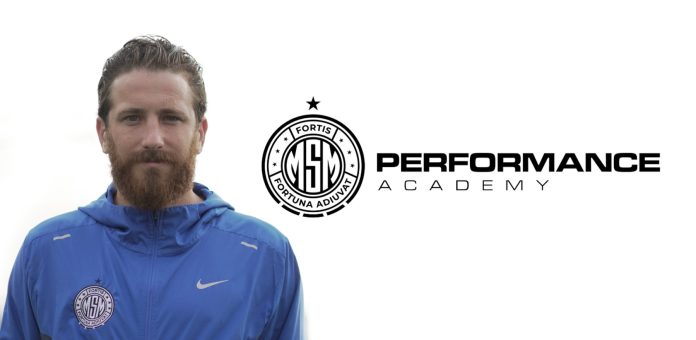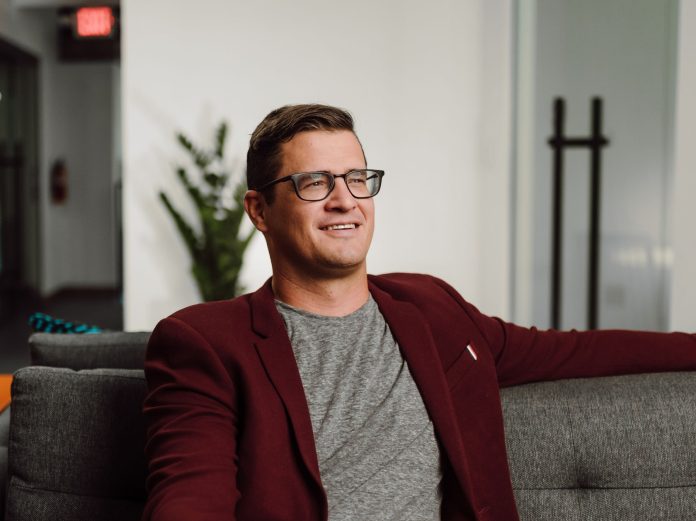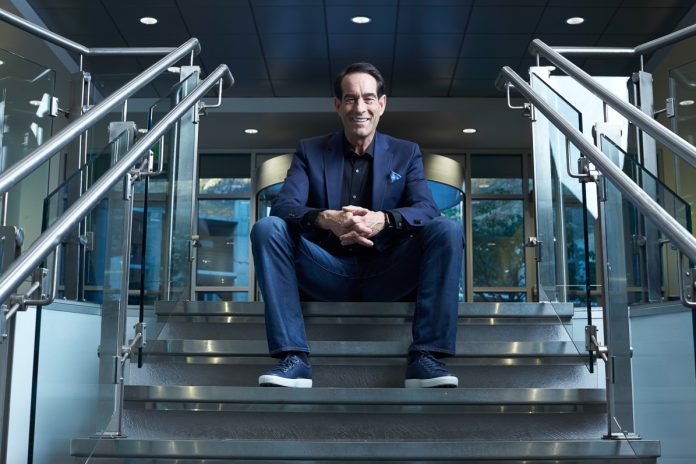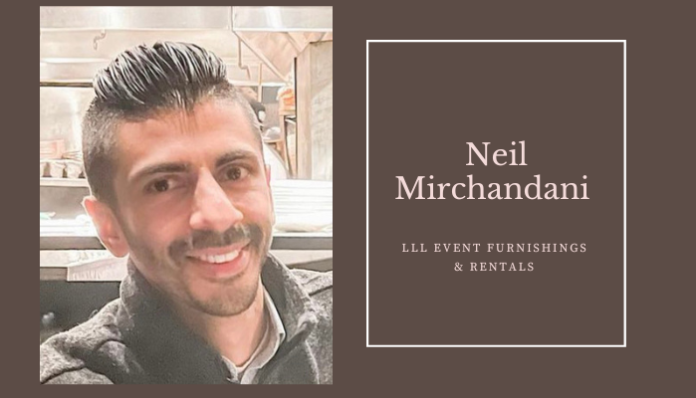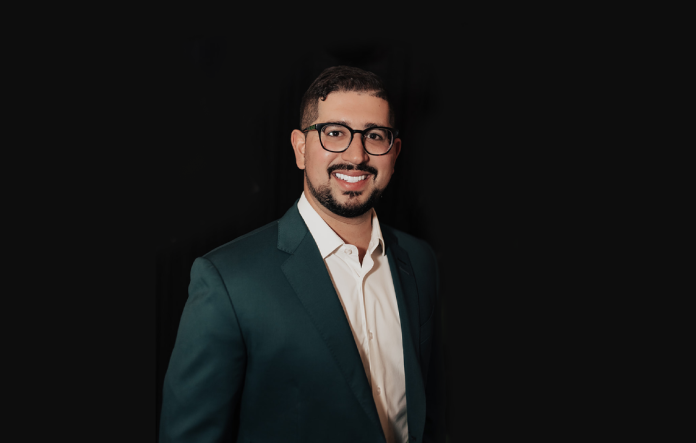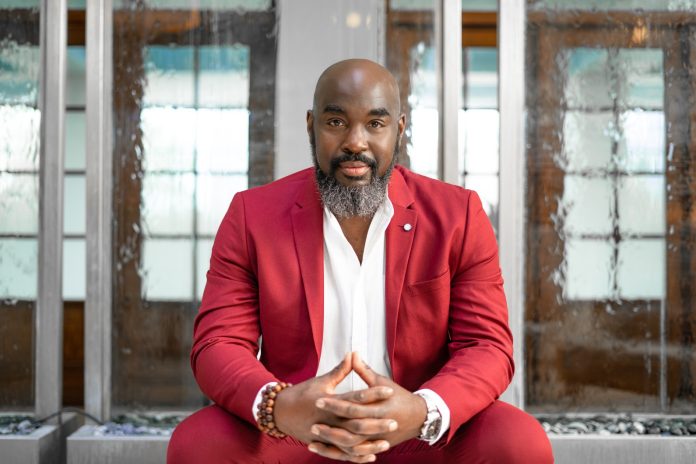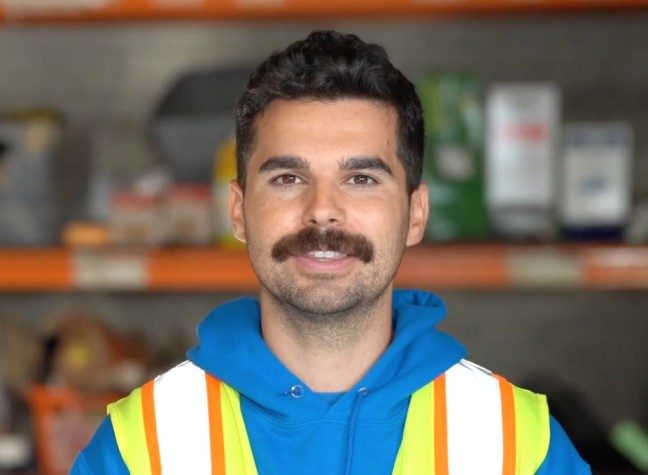Coach Lucas Zeiler is a true champion who turned his passion for sports into a lifelong journey of triumph and inspiration, but it wasn’t always an easy ride. Starting as a below-average athlete with a physique that didn’t make heads turn, he knew he needed an edge to gain the physical and mental strength to succeed in the competitive world of sports.
Driven by his love for athletics, Coach Lucas worked relentlessly to develop mental strategies and tactics that propelled him to lead professional and amateur athletes from around the world. His passion and dedication motivated him in wanting to help other young athletes achieve their college and professional-level sports dreams too, so he founded MSM Performance Academy.
“At MSM, we’re always striving to inspire and teach our student-athletes how to develop the best skills, while instilling in them an unwavering winning mindset,” said Coach Lucas.
“We are always incorporating the newest performance strategies while also teaching the fundamentals of gaining and keeping a winning mindset and strong body.”
His dedication to improving the physical and mental health of young athletes, most of whom aspire to gain athletic scholarships or enter professional sports, is nothing short of admirable. In just two short years, their influence continues to grow, having coached over 2,000 elite athletes, ranging from 15 countries.
View From the Bench
Coach Lucas was often overlooked by coaches and teachers. He was told that he didn’t have what it took to make it in college or professional sports. But he wasn’t one to give up easily.
Determined, he pushed through and earned a full-ride college scholarship, proving his doubters wrong. He went on to play semi-professionally before embarking on his coaching career, where he realized that the mental development of youth athletes was lacking in many.
Fueled by his passion for mentoring and empowering young athletes, Coach Lucas set out to create a curriculum that would not only help them develop their physical skills but also cultivate their mental strength. His philosophy emphasizes the power of Vision, Self-Awareness, Self-Belief, Professional Habits & Routines, Leadership Mastery, & Flow State. These are the pillars upon which MSM Performance Academy was founded, and it is paying off, for both the company and the athletes.
Creating a Vision
Many athletes dream of playing Professionally or Collegiately. However, many of these athletes do not know how to take this dream and put it into action. Creating a Vision is the first step to success for any athlete. Without this step, the dream remains a dream.
When athletes create a Vision, they’re beginning to nurture the dream inside them. With the Vision, the dream starts to take life and grows into every decision, thought, action, behavior, and emotion that exists in the athlete’s life.
When athletes align with their Vision, momentum starts to grow, motivation starts to enhance, and obstacles that once seemed impossible become opportunities.
“The Vision is the north star – without it, athletes are lost.”
Practice Self-Awareness
Coach Lucas teaches his athletes to practice self-awareness which allows them to understand their flaws – as well as their strengths and weaknesses. Most people, especially athletes, are afraid to look at their flaws. At MSM, the athletes become friends with their flaws. They have a system for the athletes to self-identify their biggest personal obstacles and implement strategies to take these obstacles head-on.
“When an athlete learns how to do this effectively, not only do they get big results quickly, but they become empowered to take on any obstacles that would normally hold most people back,” says Coach Lucas.
Athletes need to be cognizant of their current situation. They need to be effectively prioritizing what they need to work on, all of the time. Without Self-Awareness, no prioritizing is taking place, and the athlete’s development becomes inefficient.
Through MSM’s unique Self-Reflection Tool, athletes will often learn that what’s holding them back may have nothing to do with their sport and everything to do with what’s going on outside of their sport, in their everyday life.
Self-Belief Is Key
When teaching Self-Belief to his athletes, Coach Lucas starts with the story of the two boys.
One boy is born into a 3rd world country, he lives in a village where most of his relatives have never achieved anything, and struggle simply to survive. Another boy is born in a first-world country, his older brothers and sisters have graduated college, played college sports, and his father had a successful career playing professional sports.
Do you think those two boys have different belief systems? Do you think those two boys have a different definition of the word “success”?
We don’t even realize it, but our belief systems are often created by things outside of us, our families, our environments, and our experiences.
Once his athletes realize that Self-Belief is a Tool and you can choose to believe in literally anything you want to believe in order to help you achieve what it is you want to achieve, now you’re seeing “self-belief” – the way it’s meant to be seen.
With this perspective, Coach Lucas’s athletes may begin to break down their own limiting beliefs and build their own belief systems that will serve their thoughts, their emotions, their actions, and behaviors for the better.
“Building a psyche with the right belief systems is a key component to anyone’s success”.
Professional Habits & Routines
Now that we have our Vision – where we’re going, our Self-Awareness – where we are currently, and the right Self-Belief, the belief systems that will allow us to get to point A to point B, the athletes now need to put these principles into action. This is where Professional Habits & Routines come in.
You see 80% of our lives revolve around some habit or routine. What most athletes don’t realize is that what happens in competition directly relates to the habits & routines outside of competition.
Habits and routines are key components of success in sports and life in general. Without a structured routine, it can be difficult to make consistent progress toward your goals. Coach Lucas emphasizes the importance of developing healthy habits and routines that support an athlete’s physical and mental performance. This includes regular exercise, healthy eating, the practice of emotional control, and quality sleep. Athletes who prioritize these habits are better equipped to handle the physical and mental demands of sports, leading to improved performance on and off the field.
Beyond the basics of physical health, Coach Lucas also stresses the importance of mental habits and routines. Self-talk, visualization, and other mental practices can have a profound impact on an athlete’s performance. By developing positive habits and routines, athletes can build their confidence and focus, leading to a stronger mindset and better overall performance. Coach Lucas believes that with the right habits and routines, athletes can overcome any challenge and achieve their highest potential.
With the right habits and routines, athletes can build a foundation of physical and mental resilience that will serve them well both on and off the field, and athletes who prioritize these habits are better equipped to handle the physical and mental demands of sports, leading to improved performance on and off the field. As Coach Lucas says, “What you do off the field is reflective of what you do on the field, both mentally and physically.”
Leadership Mastery
Leadership mastery is an important aspect of achieving success in any field. At MSM Performance Academy, Coach Lucas helps his student-athletes develop the qualities of a leader through practice, guidance, and motivation. He emphasizes the importance of having a positive attitude, clear communication, and the ability to inspire others. The academy’s leadership programs are designed to teach young athletes the skills they need to lead themselves and their teams to victory. By instilling the qualities of a great leader, Coach Lucas aims to create a new generation of young athletes who are ready to take on the world and make a positive impact on their teams, communities, and beyond.
You see, college coaches & pro scouts aren’t just looking for athletes that can run fast and jump high. At the highest level, college & pro coaches are looking for athletes with strong character, who can handle adversity, and who dare to take on any obstacles that may come their way. This level of mental strength & fortitude comes from quality leaders, and that’s the type of player that will excel to the highest levels.
Flow State
Flow State is the state of consciousness in which one is immersed in a particular action with an emphasis on joy, energy, concentration, and fearlessness. The top athletes call this “Being in the Zone”. It’s when an athlete is putting in 100% effort, effortlessly. It’s when they’re aware of everything, without thinking at all. It’s when their focus is 110%, yet the game is coming to them. Time slows down, an athlete’s anticipation is at its highest, and every decision is precise & appropriate.
“This is the pinnacle of an athlete’s mental performance. This is what we’re optimizing before. This is the most valuable element that I can teach an athlete” – says Coach Lucas.
To achieve this state, athletes must find a balance between challenge and skill, and learn to manage their emotions and thoughts to stay present at the moment. When you reach a flow state, your performance can improve drastically, and you can tap into your true potential as an athlete. It takes practice, but with consistent effort, you can learn to achieve a flow state and perform at your best.
Mental Health Education
The mental health of his athletes is a top priority for Coach Lucas, and his incredible journey is a testament to the power of perseverance, passion, and dedication. Using his insights, athletes of all levels can begin to take steps toward improving their mental and physical health.
Through his work at MSM Performance Academy, Coach Lucas is transforming the lives of young athletes, helping them to reach their full potential both on and off the playing surface. He knows, firsthand, the challenges that young athletes face, and he has dedicated his life to ensuring that they receive the guidance and support they need to overcome these challenges and achieve their dreams.
From the young athlete who is struggling to maintain a positive mindset, to the college athlete who is finding it difficult to manage their time and prioritize health, Coach Lucas has the knowledge and experience to help them succeed. With his expert guidance, athletes from all over the world are learning to realize their full potential, push past limits, and achieve their goals.
The Jordan Year Challenge
Coach Lucas’ impact is set to reach new heights with the academy’s new Jordan Year Challenge, an initiative that will make the services of MSM Performance Academy accessible to the masses through The MSM Foundation.
The MSM Foundation plans to bring together the leading experts in sports and mental health for a virtual summit. These experts will share their expertise with players, parents, and coaches alike. The program includes a structured curriculum that provides them with tools and strategies Coach Lucas has used to impact the lives of over 2,000 elite athletes over the past few years.
The Jordan Year Challenge will be available for all families for just $23, and the results will be truly life-changing. The goal was to create a mass movement that will battle the suicide rate among athletes and change the landscape of youth sports.
The effort aims to honor the lives of athletes like Katie Meyer, Arlana Miller, Morgan Rodgers, Tyler Hillinski, Sarah Shulze, Jayden Hill, Robert Martin, and Lauren Bernett, all of who have taken their lives as young prestigious college athletes. Additionally, the proceeds of the challenge will be donated to the individual foundations built in their names.
MSM Performance Academy, and the newly founded Jordan Year Challenge, is successfully doing all that Coach Lucas set out to accomplish—fix the broken mindset in the world of sports.
Whether you are a young athlete just starting, or a seasoned professional looking to take your game to the next level, Coach Lucas and the team at both MSM Performance Academy and The MSM Foundation, are here to help you achieve your dreams. With their winning mindset and proven strategies, you can be confident that you have everything you need to succeed, both on and off the field. So what are you waiting for? Take the first step towards achieving your dreams today, and join the MSM family.
About MSM Academy
MSM Performance Academy, founded by Lucas Zeiler, and led by CEO Kal Maadi helps families guide their children to reach College and Professional levels in the best way possible; teaching them the fundamentals to maintain sound minds and bodies, while performing optimally, both physically and mentally. The goal for MSM is to offer mental and physical performance training and empower youth sports athletes, student-athletes, and professional athletes to become leaders of themselves. Through The MSM Foundation, the academy teaches players how to reach optimal levels of mental and physical performance. For more information, please visit www.themsmfoundation.org.



